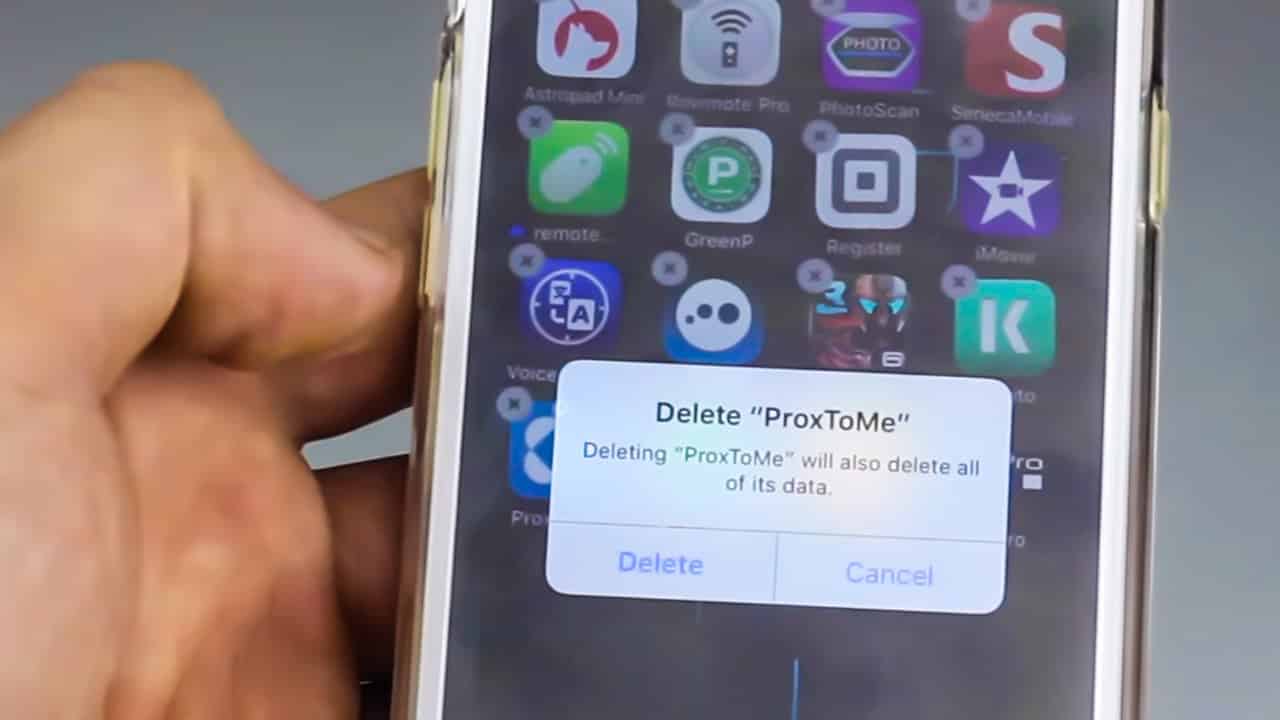News
Apps can now track you even after you’ve uninstalled them

- November 9, 2018
- Updated: July 2, 2025 at 5:46 AM

Sometimes you download an app and it’s a pairing for life. Download a new default browser for your phone, maybe install a utility app like a scanner, even standard social media apps like Instagram, Facebook, or Twitter. It’s a decision that you asked for, that you want, and that you decide to keep. Other times, however, you’ll install an app that you’ll regret. Luckily uninstalling an app is easy … but is it really gone?
As it turns out, they are not.
Apps can now track you even after you’ve uninstalled them
![]()
Companies that give developer toolkits to app designers are now offering software that tracks users even if the app is uninstalled. This software is being marketed to both iOS and Android, and enables the content creator to determine which users have uninstalled their apps. This software was introduced so that app creators can bombard users with ads in an attempt to win them back onto their device. Now your device can throw a temper tantrum demanding your attention, and won’t shut up until you reinstall the deleted app.
Who’s doing this?
Currently, app design companies that have verified use of the new tech are Adjust, AppsFlyer, MoEngage, Localytics, and CleverTap: Companies that have collaborated with T-Mobile US, Spotify Technology, and Yelp. The new software is slipped in with other developer tools, meaning that app designers at least have the choice to use it.

Protect your privacy, choose this search engine over Google
Read Now ►How are companies doing this?
The new software that tracks after an uninstall is capitalizing on a core facet of Apple and Google: Push notifications. They’re nothing new, and app designers have always been able to enable silent push notifications that alert installed apps without notifying the user.

Now, however, if those same apps no longer ping back the developer back, they know that you uninstalled it. The new uninstall tracking tools commit that uninstall to files associated with your mobile device’s advertising ID (each of which is unique). That results in those apps being able to plead for your attention again, creepily stalking you until you cave and re-download them.
The excuse doesn’t hold much water
In the best of circumstances, uninstall tracking could potentially be angled to troubleshoot known issues with apps, fixing issues or improving the software without users having to fill out surveys, deal with updates, or install new versions. Allegedly, the tracking tools were created as a means of measuring user reactions to app updates, for example.
Should app developers know how many people have uninstalled their app?
Yes.
That information would be vital for determining which marketing campaigns or updates were disliked. As things stand currently, however, those same developers are being granted tools to access not only that information, but specifically who is installing or uninstalling their app. This creates and encourages an online marketplace where companies can then harvest this demographic data to sell to other sources. Get ready to experience a whole lot more abusive ad targeting and unwanted tracking.

How are phone companies handling this?
Apple already has tools to limit advertisers from potentially tracking users. iOS Users can opt to ‘Limit Ad Tracking’ via their Settings menu (see “Advertising” under the “Privacy” tab) which masks their device’s advertising ID. This essentially shows your ID to advertisers as a string of zeroes, helping to maintain your privacy from trackers.
Apple has also recently updated Safari with ‘intelligent tracking prevention,’ which allows for greater flexibility when it comes to limiting how users are tracked while browsing online. The tracking prevention halts social media ‘Like or ‘Share’ buttons, and can also discourage use of cookies. Will it be enough to stop uninstalled apps from tracking you?
It’s too early to tell.
You may also like
 News
NewsBoost Your Productivity: Automating Data Extraction from PDFs
Read more
 News
NewsThe new Laika movie is ready to break all boundaries
Read more
 News
NewsThe anime movie that has broken records in Japan, although no one expected it
Read more
 News
NewsSupergirl is the new project by James Gunn and will be heavily inspired by one of his most famous movies
Read more
 News
NewsThe third season of Spy x Family will unveil the past of one of its most enigmatic characters
Read more
 News
NewsThis animated movie has just arrived on Movistar+ and its protagonists are some old acquaintances
Read more